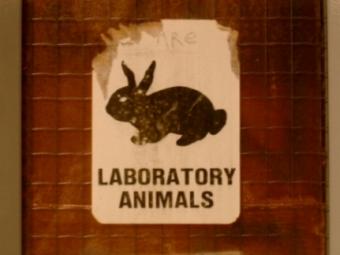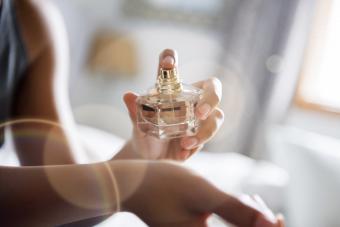
Due to the demand by consumers for safer products, cosmetic animal testing exists. An issue that is hotly debated and widely employed, the potential impact to both animals and humans is a vast concern.
The Big Debate
When the topic of cosmetic animal testing is discussed, the justification of the harm to animals being worth the benefit to humans is different than the debate regarding testing animals for medical research. Cosmetics are not necessary to sustain life like the science of medical research can cure disease and save lives; but, proponents of cosmetic animal testing claim that since the products are used on humans, they should be tested for all risks. No one would want to discover that mascara they just bought at the store might lead to blindness. So, should a few animals' eyes be sacrificed to ensure the safety of all cosmetic users?
The FDA answers this question for some types of products as they do require animal testing for medicinal skin and eye care products. Now, while they do not specifically require testing for most cosmetic and personal care products, many manufacturers still use animal testing in their product research.
Animals have been used in testing for over 2,000 years and the debate has been going on for just as long. In the most recent years the use of animals in all kinds of testing has dropped due to the pressure from animal rights activists. While the vegetarian movement is strong, many people who are willing to kill animals for meat still oppose cosmetic animal testing. The argument stems from whether the animal will suffer and is the testing absolutely necessary.
The Animal Welfare Act was created to try and set some standards around this debate. The Act created standards for the handling and care of all animals, including those used in laboratories. It specifically directs that researchers try to evaluate the use of non-animal experiments before actually using animal testing. For certain studies, painkillers must be used to decrease the suffering animals may receive and animals must be well cared for. The Act also allowed for random lab inspections to be preformed in research facilities to ensure the standards are followed.
Product Labels
Due to the pressure from consumers, more cosmetic companies are placing labels on their products that ensure "cruelty free" and "not tested on animals." What do these labels actually mean? Some products with these labels have only used non-animal testing methods, but other's make the claim and then sneak around the issue. In some cases, the individual ingredients have been tested on animals in the past, but not the actual mixture being sold. In the worst scenario, some manufacturers actually hire an outside company to do the cosmetic animal testing for them and buy the results.
Types of Cosmetic Animal Testing
Due to a large disaster in 1920, where women were drawn to salons for an eyelash treatment designed to make their lashes darker. The dye, called Lash Lure, did as it promised but in exchange for lush lashes, the beauty searches received problems from mild eye irritation, to blindness, and even death.
This horrible cosmetic incident led to the main cosmetic animal test used today, the Draize tests. With an eye and skin version, basically white albino rabbits are used to test cosmetic products for potential cell damage or irritation. For products used near the eyes, the white rabbits are an idea subject due to the fact that their eyes have a hard time naturally washing away irritating substances. The rabbits are held by metal bands and then drops of a cosmetic product are placed in the eyes. The researchers then check the rabbit's eyes regularly for damage.
The Draize skin test is essentially a similar concept, where the hair of rabbits, mice or rats is shaved in a small area. The cosmetic products are then rubbed directly into the skin and the area is regularly inspected for damage or irritation.
With products that involve a spray action, like hair spray or some perfumes, an inhalation test is often performed. An animal, like a rabbit, is placed in a close container and forced to breathe the cosmetic product through a mask. The animal is then monitored for breathing difficulties.
Testing without Animals
The main non-animal test employed in cosmetic laboratories today is called the Neutral Red Uptake Assay. This test essentially uses cells in a glass dish. The chemicals in cosmetics are then added to the dishes. A special dye that reacts differently to dead and live cells is added. The researchers then analyze the results with a computer to determine the risk a chemical will have on the cells. These types of tests are known as in vitro, a method which literally translates to "in glass."
Scientists are also frantically searching for new options in non-animal testing. With the pressure from consumers and animal rights activities, along with the necessity of offering a safe product, the need for effective testing without animals is a must.
Companies Against Animal Testing
The main cosmetic companies who have made a strong stance against animal testing are:
While these have historically topped the list, there are many others out there that practice ethical treatment of animals also, such as Urban Decay. This is a makeup company passionately working together with the Animal Protection Institute to end all cosmetic animal testing in the United States. They are also one of very few brands who offer cruelty-free brushes in addition to a strong stand against animal testing for all their products.
Research Carefully
Some companies that have been historically against animal testing, including Mary Kay, Avon, and Estée Lauder, but cannot be placed on a list that completely abstains because they will do it if required.
The Mary Kay product promise states that they do not support animal testing, and do not participate in it unless absolutely required: "We do not conduct animal testing on our products or ingredients, nor ask others to do so on our behalf, except when absolutely required by law." Estée Lauder also states on their FAQs page that they do not test on animals unless required by law.
Avon, similarly does not support animal testing, except as required by law: "Avon will conduct animal testing only when required by law, at the request of government health or medical authorities, and only after having first attempted to persuade the requesting authority to accept non-animal test data."
According to an article in Forbes magazine, the reason for these companies testing on animals lies in the Chinese government's requirement for products sold in China to tested on animals. If you are against testing on animals, research your cosmetic company choices carefully. Even if the company did not test on animals in the past, situations like this illustrate that there is no guarantee that a company will not test on animals in the future.
Additional Information
To continue the discussion and debate you will want to visit these two websites:







